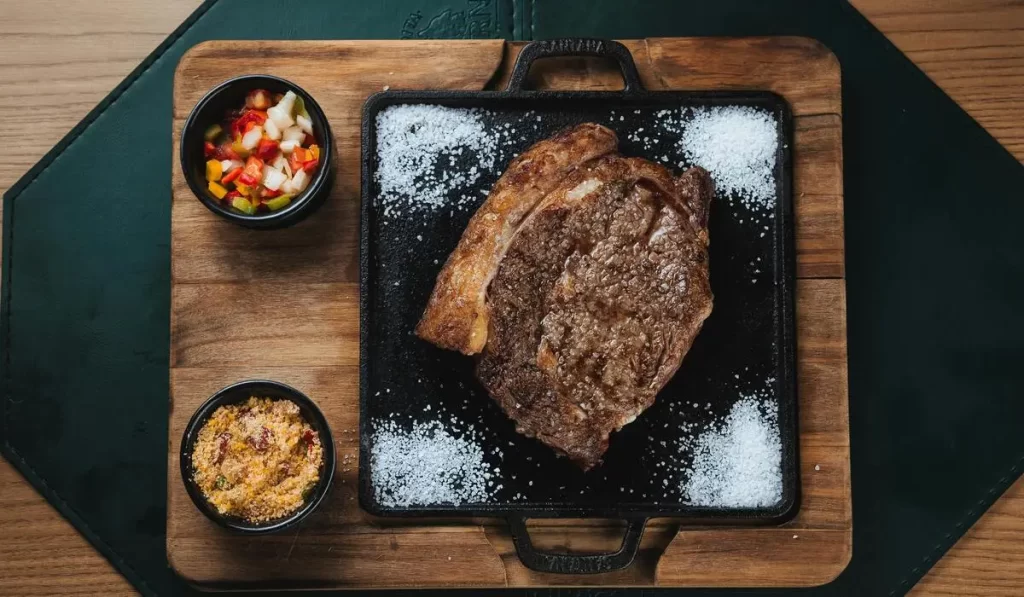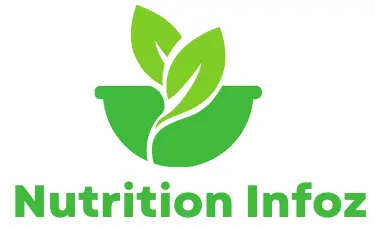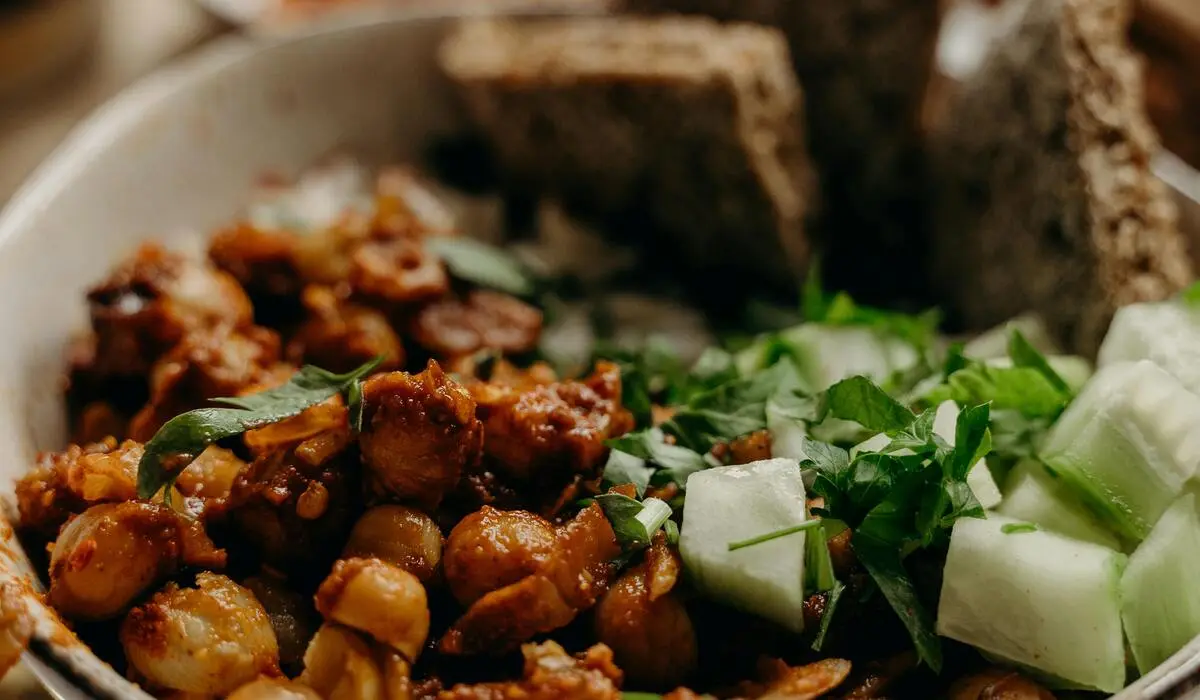Protein digestion involves the chemical breakdown of complex protein structures. Absorption and digestion are vital processes that fuel our bodies with essential amino acids from animal proteins. This article will explore how dietary proteins, particularly from high-protein meals, are broken down and absorbed efficiently, enhancing body function. Whether you’re curious about protein metabolism or looking to optimise your protein intake, this guide offers practical insights.
What Is Protein, and Why Does It Matter?
Protein is a vital nutrient required for body repair and muscle growth. Its breakdown requires time and mixing in the digestive process. Protein synthesis depends on sufficient amino acid intake from food proteins, especially from high-protein meals, making dietary protein essential. It also acts as the primary building block for enzymes and hormones.
What’s Really in Spam? A Deep Dive Into Spam Nutrition Facts
How Does Protein Digestion Begin in the Mouth?
The process begins when teeth mechanically digest large egg pieces into smaller pieces. Saliva aids swallowing, and food moves through the gastrointestinal tract, where stomach contractions churn the partially digested food. This preparation makes it easier for the stomach to churn the partially digested protein, forming a chyme mixture.
What Happens During Protein Digestion in the Stomach?
Protein digestion in the stomach involves pepsin and hydrochloric acid, creating a chyme mixture. These digestive agents break down the food’s three-dimensional structure into chyme. The stomach releases enzymes that continue the chemical digestion of protein, turning it into smaller polypeptides.

What Role Does the Small Intestine Play in Protein Absorption?
As chyme enters the small intestine, the pancreas secretes digestive enzymes like trypsin. These enzymes further digest polypeptides, allowing individual amino acids and dipeptides to be absorbed into the intestinal lumen for further use in the body.
How Are Amino Acids Absorbed and Transported?
After absorption, amino acids are transported to the liver for use or stored in the amino acid pool. Some are transformed into body protein, while others enter metabolic processes, ensuring steady amino acid levels in the bloodstream for a longer time.
What Happens to Excess Protein and Byproducts?
The liver transforms excess amino acids into urea, excreting it in the urine after breaking down protein aggregates. The large intestine excretes undigested proteins in the faeces, completing the digestive cycle.
How Can You Improve Protein Digestion?
Improving protein digestion involves consuming foods with digestive enzymes or protein powder to enhance the chemical breakdown of protein aggregates. A balanced diet ensures that digestive processes run efficiently, helping you break down the protein for optimal absorption and muscle repair.
Key Takeaways from the Article
- Protein digestion Mechanical digestion begins in the mouth with chewing and continues through the stomach and small intestine, where egg pieces enter the stomach.
- Gastric juice and enzymes produced by cells that line the stomach are crucial for digestion. like pepsin and trypsin are essential in breaking down proteins.
- The small intestine absorbs amino acids from peptide bonds and transports them to the liver, which is crucial for various bodily functions, especially when sufficient grams of protein are consumed.
- Excess protein from high-protein meals can lead to increased urea production by the liver, as the breakdown requires time and mixing in the digestive process. The body excretes it as urea through urine and expels undigested remnants via faeces.
- Optimising protein intake is essential for ensuring that the body has enough grams of protein for effective digestion and muscle synthesis. and choosing the right protein sources can improve digestion and absorption.
- Digestive enzymes, including pancreatic enzymes, play a crucial role in food digestion, particularly in breaking down milk protein.

Questions and Answers
How does protein digestion start?
It begins in the mouth with chewing and continues in the stomach with enzymes.
What enzyme is crucial for protein digestion in the stomach?
Pepsin breaks down proteins into smaller polypeptides, facilitating the chemical breakdown of food proteins into a more uniform mixture.
Where does the body absorb amino acids?
The small intestine’s lining absorbs amino acids after the stomach begins the chemical breakdown of proteins.
How does the body handle excess protein from a high-protein meal, particularly regarding liver transformation into urea?
The liver converts excess amino acids into urea and excretes it in urine.
What aids protein digestion in the small intestine?
Trypsin and other enzymes from the pancreas further break down polypeptides.
How can you improve protein digestion?
A balanced diet with digestive enzymes or protein powder helps maintain adequate grams of protein.
Why is protein absorption important, especially after consuming a high-protein meal?
It ensures amino acids from food proteins are available for muscle repair and body functions.




Leave feedback about this